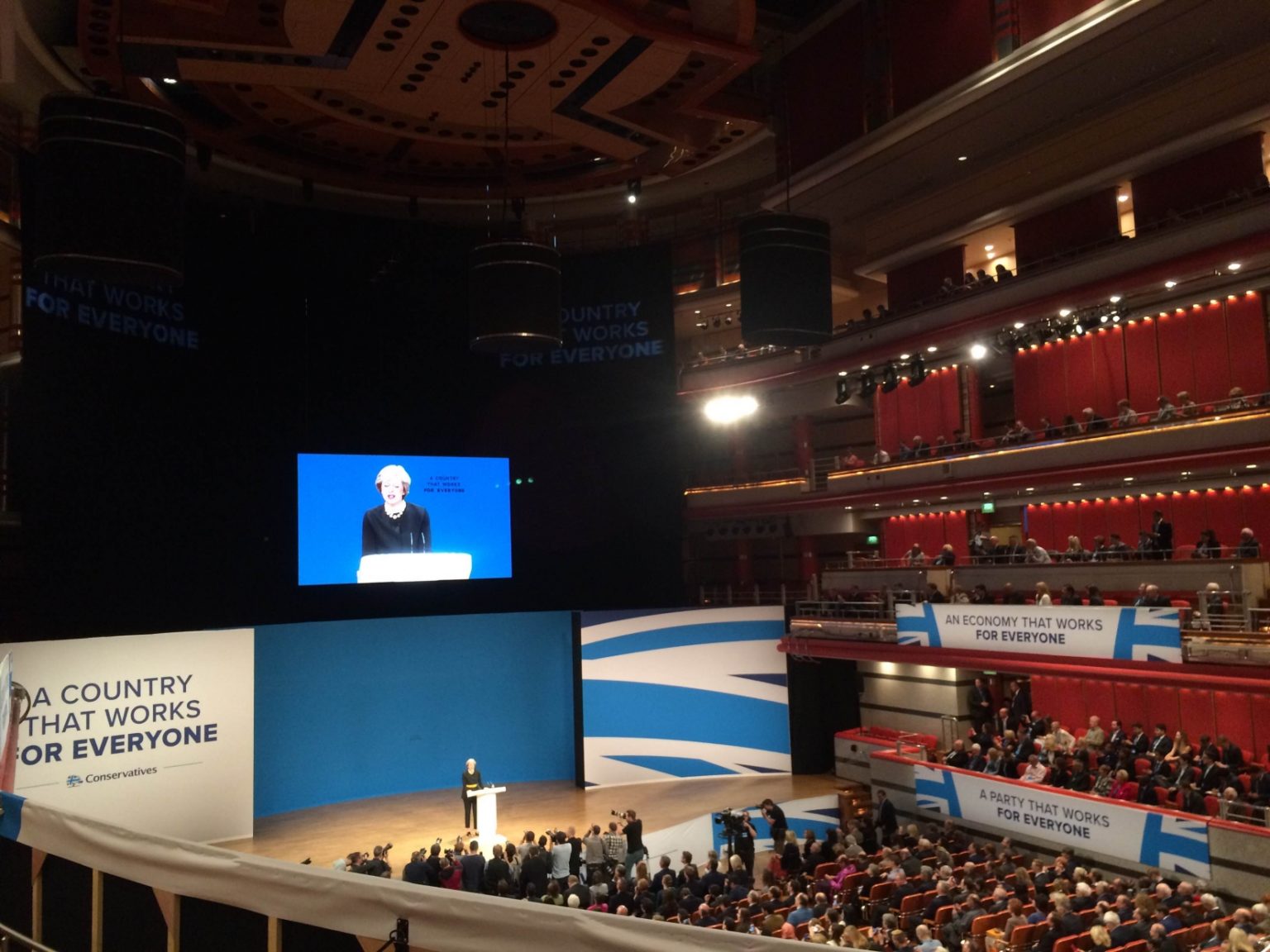Prime Minister Theresa May’s decision to omit the Paris climate deal ratification or any environmental issues from her opening speech at the Conservative Party Conference has been called “worrying” by environmentalists.
May used her conference address on Sunday 2 October in Birmingham to set the scene for Brexit, outlining issues on which she is calling for cooperation with the EU.
“I want [the deal] to include cooperation on law enforcement and counter-terrorism work. I want it to involve free trade, in goods and services. I want it to give British companies the maximum freedom to trade with and operate in the single market – and let European businesses do the same here.”
But May failed to mention how Britain will cooperate with the EU on environmental issues. She reiterated her announcement she had already made on the morning’s Andrew Marr show that Article 50 would be invoked by March 2017.
This is all despite the fact that just two days prior, on Friday 30 September, the EU swiftly ratified the Paris climate deal. Speaking at the UN general assembly in New York last month May has pledged to ratify by the end of this year.
While the EU ratification does include the UK’s share of emissions, Britain will still need to ratify the deal domestically as France, for example, did earlier this year.
Protesters outside the Conservative Party Conference calling for climate action. Photo: Victoria Seabrook
Sam Lowe, Friends of the Earth (FoE) campaigner, called it “concerning” that the environment had not featured as one of her priorities. “We want to see Paris ratified immediately,” he said.
May did however announce the new “great repeal bill”, which will allow Parliament to enshrine elements of EU law it wants to keep into the British system while discarding unwanted parts.
As DeSmog UK reported in June, the UK currently works with the EU on a number of environmental issues, including the emissions trading system (ETS), clean energy in the form of the renewable energy directive (RED) as well as various habitats and wildlife directives.
The only hint as to whether the UK will be bound to the Paris deal, or in fact, any international deal, came when May spoke of the new bill. She said: “When the great repeal Bill is given royal assent, parliament will be free – subject to international agreements and treaties with other countries and the EU on matters such as trade – to amend, repeal and improve any law it chooses.”
Lowe called it a “positive first step” but said there were “still a huge amount of questions about how that works. It can’t just come over and be left there as dead legislation.”
He urged that the EU and UK must continue working together on environmental issues.
“We can’t go it alone. We need to cooperate at EU and international level on issues like pollution, wildlife and climate change. They’re not confined to national borders. No one country can deal with alone. Smoke from our chimneys in the UK blows over to the continent.”
Global Narrative
May reassured the conference of the strength of a ‘global Britain’ in its own right, calling it the “greatest soft power in the world”.
She said: “We don’t need – as I sometimes hear people say – to “punch above our weight”. Because our weight is substantial enough already.”
In her call to arms she urged delegates to “have the confidence to go out” and secure trade deals, win contracts, generate wealth and create jobs.
Mr Lowe of FoE said it was “a worry” that fighting climate change “hadn’t even made it in to the narrative when talking about global leadership and the UK being outward-looking and world-leading”.
“The environment should be something we lead on and the that fact that is wasn’t even used as an example is concerning.”
It seems any mention of climate change was left to Secretary of State for Business, Energy, and Industrial Strategy Greg Clark’s speech on Monday. While it focused heavily on business and enterprise, Clark said: “Our global leadership in combatting climate change now presents us with a massive opportunity to enjoy industrial success as we put clean energy at the heart of our industrial future.”
Clark called for “an upgrade in the resilience – and the cleanness – of our energy supplies” and said “We have low carbon energy systems that lead the world, but also a failure of successive governments to replace our ageing power stations.”
Yet, speaking at a fringe event, Environment Secretary Andrea Leadsom told the audience that while there would be no “bonfire” of environmental legislation when the UK leaves the EU, some measures could be “significantly” rewritten.
Transparency Needed
May also warned the government would not provide a “running commentary” of Brexit negotiations, raising concerns the details on some agreements could be withheld from the public.
She said: “We will not be able to give a running commentary or a blow-by-blow account of the negotiations. Because we all know that isn’t how they work. But history is littered with negotiations that failed when the interlocutors predicted the outcome in detail and in advance.”
But Friends of the Earth has said May’s approach was “unsustainable”, calling for transparency in the talks.
Lowe said: “That comment definitely is a worry. There is certainly a need for transparency in the negotiations. These claims that they will hold their cards close to their chest just don’t hold true. They will be telling the other side anyway what they want.
“And I can’t see how they can prevent other countries and our own MEPs from talking about it. I just don’t think it’s a sustainable approach.
He also urged the government to develop a “very clear consultation mechanism”.
It is unusual to hear from a prime minister so early on in a conference and indeed May will address the party again on Wednesday.
Photo: Victoria Seabrook
Subscribe to our newsletter
Stay up to date with DeSmog news and alerts







